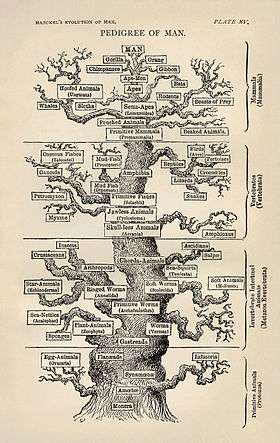Discoscapa apicula
Discoscapa apicula is one of the two oldest-known species of bees. The species was described from an amber inclusion in Burmese Amber in 2020 by George Poinar, Jr., a zoologist at Oregon State University.[1][2] The fossil was found in a mine in the Hukawng Valley of northern Myanmar and is believed to date from the Cretaceous Period, 100 million years ago, the same age as Melittosphex burmensis, previously considered the oldest known bee species;[3] as it comes from the same amber deposit, these two specimens are considered to be the same approximate age.
| Discoscapa apicula | |
|---|---|
| Scientific classification | |
| Kingdom: | Animalia |
| Phylum: | Arthropoda |
| Class: | Insecta |
| Order: | Hymenoptera |
| Superfamily: | Apoidea |
| Family: | †Discoscapidae Poinar, 2020 |
| Genus: | †Discoscapa Poinar, 2020 |
| Species: | †D. apicula |
| Binomial name | |
| †Discoscapa apicula Poinar, 2020 | |
See also
- Life timeline – Life events since the formation of the Earth 4.54 billion years ago
- Timeline of the evolutionary history of life – Current scientific theory outlining the major events during the development of life
References
- George Poinar Jr (2020). "Discoscapidae fam. nov. (Hymenoptera: Apoidea), a new family of stem lineage bees with associated beetle triungulins in mid-Cretaceous Burmese amber". Palaeodiversity. 12 (1): 1–9. doi:10.18476/pale.v13.a1.
- Gonzaga, Shireen (20 February 2020). "A bee from the age of dinosaurs - One hundred million years ago, a bee got trapped in tree resin. Over time, geological forces converted the resin to amber. Now a scientist arrives on the scene, to tell us this bee's story". Earth & Sky. Retrieved 21 February 2020.
- G. O. Poinar, Jr. & B. N. Danforth (2006). "A fossil bee from Early Cretaceous Burmese amber". Science. 314 (5799): 614. CiteSeerX 10.1.1.627.551. doi:10.1126/science.1134103. PMID 17068254.
This article is issued from Wikipedia. The text is licensed under Creative Commons - Attribution - Sharealike. Additional terms may apply for the media files.

